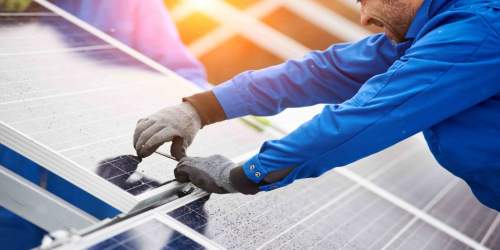Read Time : 1 Minutes
Solar Panels Increase Property Value
Will having solar panels on my roof affect my property’s value?
Due to the relative novelty of solar energy and the accompanying government subsidies, it remains unclear as to whether the installation of solar panels impacts on property prices. The influence of solar panels on the value of your property is likely to be predicated upon the balance between aesthetic and financial motivation, which is likely to remain largely subjective.
COMPARE PRICES FROM LOCAL INSTALLERS
Compare prices from local companies fast & free
Enter your postcode to compare quotes from leading professionals. We promise to keep your information Safe & Secure. Privacy Policy
Rent a roof and free solar
However, if you are tied in to a ‘rent-a-roof’ or 'Free Solar Panels' style scheme for long periods of time (typically 20-25 years), this is probably going to affect the value of your property.
Research carried out by the United States Department of Energy suggests that PV panels can increase the value of properties in California by up to 4%, or by as much as $6.40 (£4) per watt installed.[1] One should, however, note the climatic and cultural differences between the US and the UK.
The presence of a PV system in a business is likely to boost its corporate image. The clients of businesses who choose to install a solar PV system are likely to appreciate environmental commitment that such a decision represents.
Find a local installer
Welcome to the biggest directory of UK renewable energy companies





 How Much do Solar Panel Systems Cost in 2024?
How Much do Solar Panel Systems Cost in 2024?







